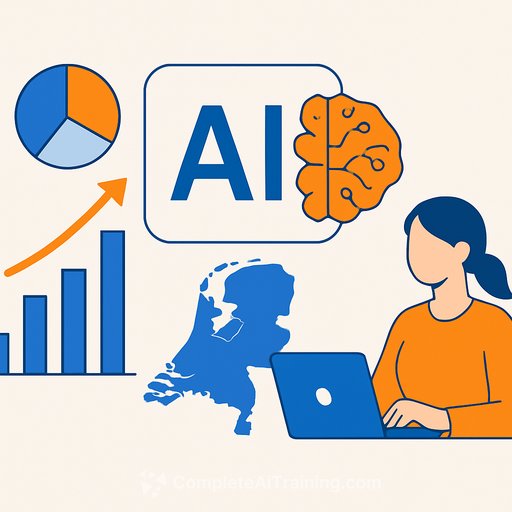The AI Shift in Wealth Management: What Executives and Investors Need to Know
The wealth management sector is changing fast as artificial intelligence (AI) alters how financial advice is delivered, assets are managed, and clients engage with advisors. By 2025, the AI-driven wealth management market is expected to hit $9.8 billion, growing annually by over 17%. This change goes beyond efficiency improvements—it’s reshaping the advisor-client dynamic with tools that blend algorithmic precision and human insight.
For leaders and investors, the key challenge is adapting strategies to leverage AI’s advantages while maintaining the human touch that builds trust and guides complex decisions.
How AI is Changing Client Acquisition and Engagement
AI tools are transforming how firms attract and keep clients. Conversational AI, powered by large language models, now handles about 70% of client inquiries in large institutions, speeding up response times and cutting costs. Robo-advisors, managing over $2 trillion in assets, expand access to personalized financial planning—especially for younger investors. Nearly half of robo-advisor users are under 35, showing a clear shift in who trusts automated advice.
For advisors, this means revisiting traditional client acquisition methods. AI can analyze behavioral data to spot promising leads, automate onboarding, and customize outreach efficiently. Yet, AI falls short in building emotional trust. Advisors should focus more on relationship-building, ethical guidance, and delivering nuanced advice—areas where human judgment remains irreplaceable.
AI’s Role in Asset Allocation and Risk Management
Asset allocation is also being reshaped by AI. Machine learning and predictive analytics help optimize portfolios in real time, identifying trends and adjusting strategies with speed. Generative AI tools like Smart Summaries and Generative Grids condense large data sets into clear insights, reducing research time by up to 80%.
AI’s strength lies in processing unstructured data—such as news sentiment, economic shifts, and geopolitical events—giving investors an edge. Still, overreliance on AI poses risks, especially in volatile markets where algorithms may misread anomalies. Hybrid models combining AI’s data crunching with human judgment are proving most effective. For example, Morgan Stanley’s use of a GPT-4-powered assistant cut research time by 90%, freeing advisors to concentrate on client-specific strategies while avoiding blind spots.
Strategic Moves for Financial Advisors
- See AI as a Partner: Advisors should learn to use AI platforms to automate routine tasks like compliance and client verification. This creates more time for meaningful client interactions. Focused training on AI literacy and data interpretation is essential.
- Double Down on Emotional Intelligence: As AI handles data, advisors should sharpen skills like empathy, storytelling, and ethical reasoning. Clients want advisors who can put AI-generated insights into the context of their life goals.
- Adopt Hybrid Models: Firms need platforms that blend AI with human oversight, such as agentic AI systems that collaborate with advisors in real time. This balances scalability and trust.
Investment Opportunities in AI-Driven Wealth Management
Investors can gain by focusing on firms at the crossroads of finance and technology. Areas to watch include:
- AI Infrastructure Providers: Companies like NVIDIA, whose chips power AI algorithms, are benefiting from increased demand.
- RegTech and Compliance Platforms: As AI use grows, firms offering tools to ensure ethical AI practices, such as explainable AI (XAI), will gain importance.
- Hybrid Advisory Platforms: Look for companies like Coforge, which blend AI with human workflows, or startups using generative AI for portfolio management.
Ethical and Regulatory Considerations
AI’s rise brings regulatory scrutiny. The SEC’s proposed rules aim to prevent AI-driven conflicts of interest, emphasizing transparency. Advisors must ensure their AI tools are auditable, explainable, and aligned with fiduciary responsibilities. Investors should favor firms with strong governance and ethical AI policies.
The Future: AI and Human Expertise Working Together
The shift in wealth management is about redefining advisor roles, not replacing them. AI processes data efficiently, but human trust, empathy, and ethical judgment remain essential. For professionals, success means adopting AI tools while highlighting their uniquely human strengths. For investors, the opportunity lies in supporting firms and technologies that combine AI with human insight.
This hybrid approach—where AI and human expertise coexist—will drive smarter, more inclusive, and ethically sound financial services.
Your membership also unlocks:










